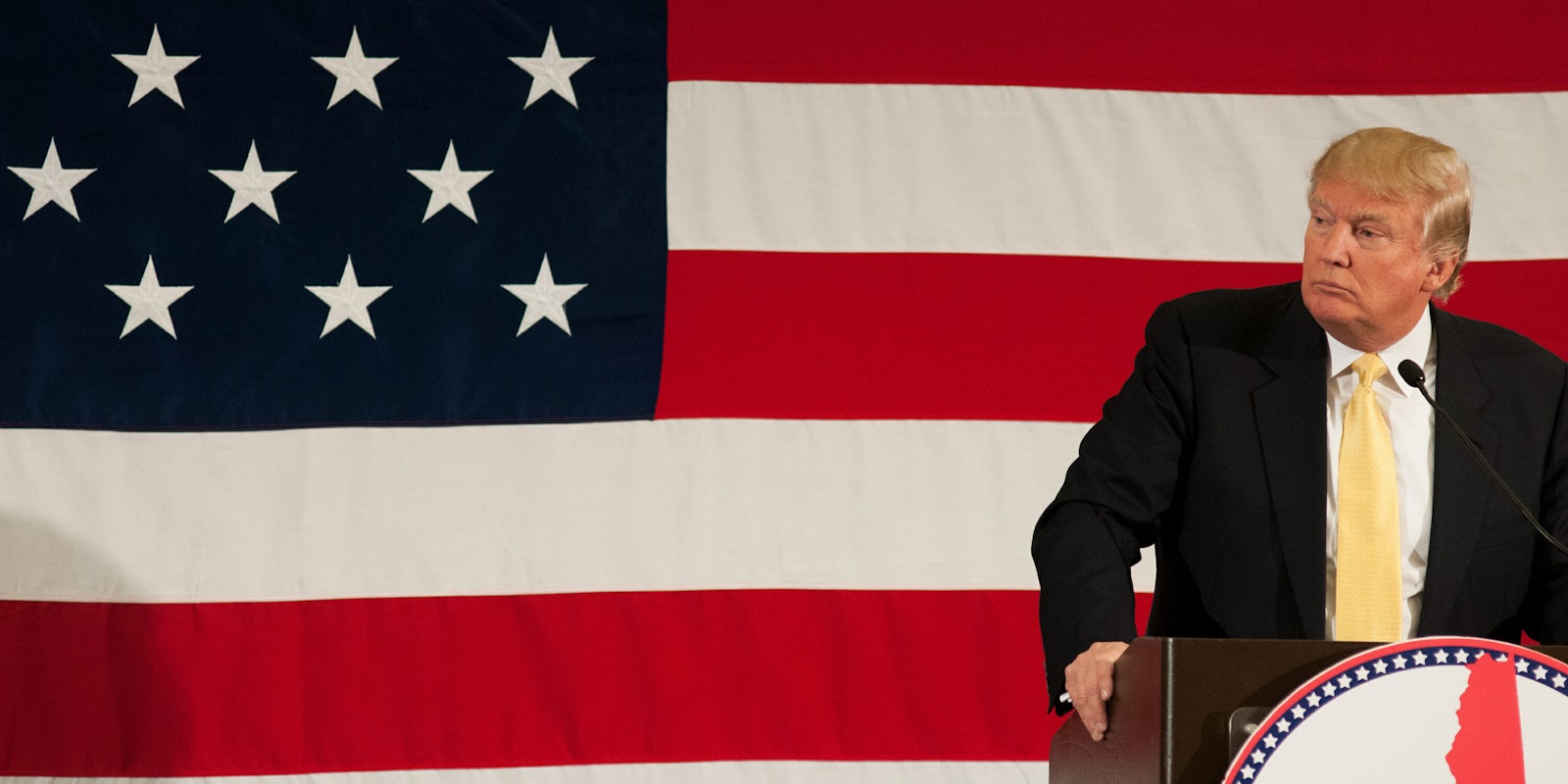President Donald Trump’s America-first rhetoric around trade has been cause for concern globally, especially in Europe. But it may now be time for American firms to start getting worried.
One of the first major tests will be the steel industry, with Trump threatening to impose protectionist measures on steel exports. Jean-Claude Juncker, president of the European Commission, said that the European Union was in an “elevated battle mood” and would respond to such moves with its own measures, possibly imposing restrictions on American whiskey.
The E.U. has already taken a firm stance against protectionism. In late June, the European Commission (EC), the E.U.’s executive arm, issued a report that stated the “scourge of protectionism” was on the rise around the world.
This tension makes the EU’s ongoing regulatory battles with Silicon Valley all the more interesting—and potentially damaging for American technology firms.
The recent $2.7 billion fine against Alphabet—a record sum—for unfairly prioritizing Google products in search results could have massive ramifications on how it does business, though the internet giant is, of course, appealing the decision.
Europe took the lead on this investigation and the EC hasn’t made any ruling such as this. TechFreedom, a Washington, D.C., think tank, accused the Commission of using antitrust law as a “weapon for nationalist retribution against American web services” after the fine was handed down. Berin Szóka, the organization’s president, told the Daily Dot that the EC was only protecting Google’s competitors rather than protecting consumers.
Others disagree that Europe’s increasing regulations are unfair or stem from anti-American sentiment.
“The statistics prove that the European Union’s antitrust fines hit companies regardless of origin,” said Thomas Vinje of FairSearch, a European business group involved in a separate ongoing case against Android. “E.U. antitrust enforcement, such as in the Google case, is not about attacking American companies. It is about ensuring compliance with the law and competition on the merits.”
“This is part of a long-running process in which the European Commission has been attempting to address what it claims are abuses of market power by tech companies—the largest of which are of course American,” Jonathan Portes, professor of economics and public policy at King’s College London, told the Daily Dot. “It will certainly not be viewed positively either in Silicon Valley or D.C., but in itself, it does not represent a major new departure, so I would expect there to be some, but relatively limited, negative impact.”
Regardless, the landscape in Europe is changing for American tech companies. E.U. competition commissioner Margrethe Vestager has been relentless in her pursuit of U.S. tech firms and enforcing competition law. She led the investigation into Apple’s tax strategies in Ireland that ultimately slapped the Cupertino company with a $13 billion back-tax bill.
Meanwhile, Vestager’s colleagues in Brussels are continuing to tease out stricter regulations for data privacy. The General Data Protection Resolution (GDPR) will come into effect in May 2018 and will fine companies tens of millions for data breaches. The ePrivacy directive, a set of rules governing things like cookies and metadata, is currently being overhauled.
“The big novelty for me in this matter is that the E.U. seems to be taking the lead on these issues,” said Laurent Muzellec, a business professor at Trinity College Dublin. “Usually, it’s the American government that has the courage to sanction American companies.”
One of the best-known cases in the U.S. around antitrust was the ruling that Microsoft had violated competition law with the bundling of Internet Explorer on PCs. Now, the E.U. is doing more of the regulatory heavy work, Muzellec said: “I think it’s quite welcome in a way that the E.U. takes a more proactive approach considering we seem to culturally have more concerns around privacy for example than American counterparts.”
This may only be the beginning of Silicon Valley’s European headache, too. Regulators are still considering a case take against Android’s conditions for pre-installing Google products, effectively shutting out competitors and leading to further unfair dominance for Alphabet. The fine could exceed the last one.
In September, the European Court of Justice will rule on Intel’s appeal against a 2009 antitrust fine of $1.2 billion. The European Commission had ruled that the chipmaker’s rebates for PC manufacturers were anti-competitive. The verdict will help Google shape its own case; this month it hired five major law firms in the U.S. and Europe to help navigate the minefield.
“In the long term, it’s kind of beneficial that those antitrust regulations are being implemented even for companies that are concerned with this,” said Muzellec. “It allows the company to not be too complacent and use their dominant power to facilitate their product.”
Whether or not the Trump administration ever gets involved remains to be seen but the wrangling between European lawmakers and Silicon Valley appears to be just beginning.
